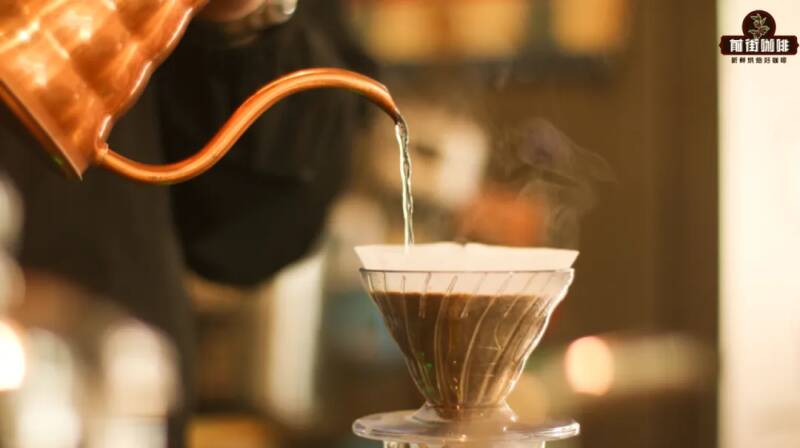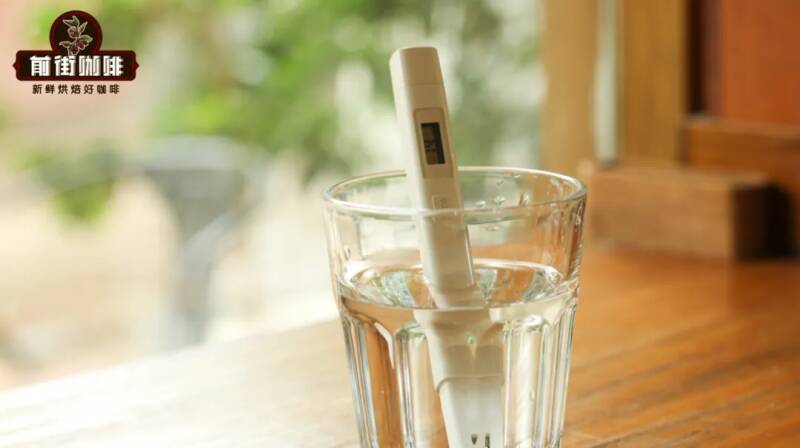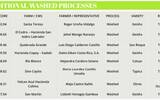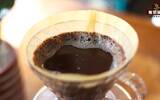How to mix coffee brewing water? How are baking soda and magnesium sulfate used on coffee? Why can't the espresso maker use tap water?
In the process of making coffee, colorless and tasteless water acts as a solvent! Because the act of coffee extraction requires it to bring out the flavor substances hidden in the coffee. And the deeper you go into the brewing of coffee, the more you will realize the importance of water.

As we can often see on the Internet: "the water supplied to the espresso machine for coffee had better not use tap water." This is not because the tap water is not clean enough, but because the tap water contains too many microelements, when the water boils, these substances will adhere to the furnace wall to form scale, and its existence will have a great impact on the operation of the coffee machine itself and the taste of the coffee. Not only the production of Italian coffee, for hand coffee, the choice of water is also very important! As Qianjie used to say, different water sources contain different amounts of minerals. The presence of an appropriate amount of minerals contributes to the extraction of coffee flavor substances, while excessive minerals hinder the extraction of coffee flavor substances. As a result, the final coffee taste will not be very good. So generally speaking, when we brew and make coffee, we will use soft water with low PPM.

What is soft water? Let's talk about what PPM is! PPM is a concentration unit expressed by the ratio of solute mass to total solution mass in parts per million. Generally speaking, water quality is often expressed by mg/L, which translates to 1ppm=1mg/L. We can simply understand that the more microelements in the water, the higher the PPM. According to the description of the drinking Water quality guidelines issued by World Health Organization (WHO), we can call the water above 200PPM as hard water and the water below 200PPM as soft water. Although the PPM of tap water in most cities is less than 200, it belongs to the scope of soft water. But for coffee brewing, the definition of soft water can be smaller! When the PPM exceeds 140, the space in the water will be more saturated, which makes it difficult to extract all the substances from the coffee! Even if all the parameters are suitable, it is easy to underextraction or excessive extraction. So tap water is not recommended to be directly used to make coffee (most of it is not filtered)!
In order to solve the problem of coffee water consumption, most friends will install a filtration system for tap water to ensure good water quality. Of course, if we want to extract a better flavor of coffee, we can also, like the contestants, make the most suitable water for brewing. The easiest way is to buy a water concentrate as you did in the previous article on the street. The method of use is to mix an appropriate amount of pure water (Yibao) into a mixed water concentrate and stir it evenly. The disadvantage is that it is a little expensive.
There is also a more approachable method, but it is more troublesome to operate, because the ingredients you need to prepare are: edible baking soda, edible Epsom salt (magnesium sulfate), and 3 bottles of 1L pure water (easy to calculate with one liter of water). Epsom salt is difficult to buy offline, so it is best to buy it online. Then the steps are as follows: 1. First, we pour 1.68g baking soda into an one-liter bottle of pure water and stir well to make it dissolve! In this way, a bottle of 1000ppm solution can be obtained, which is the configured "buffer" / "HCO3-". The buffer can block the change of pH in the solution. Since there are no obvious features, we need to mark them in order to distinguish them, and then put them aside. two。 Then, take out the second bottle of one liter of pure water and pour 2.45g Epsom salt into it, still fully dissolve it by stirring! Such a bottle of concentrate containing magnesium ions is complete. Close to the 1000ppm, remember to mark it, and then stand by. 3. Finally, the water can be allocated, here is the use of SCA water quality requirements range allocation, stipulating the total hardness range of 120-130ppm. So we added the 40ml buffer, the "magnesium solution" of 80ml and the deionized water of 880ml, and the blending water was finished.
Qianjie uses blending water and Nongfu Spring to brew a pot of Ethiopian Cochelle, respectively. As a result, the coffee brewed by Nongfu Spring is quite different: Kochel brewed with Nongfu Spring has bright citric acid, faint white flower aroma, and black tea tail rhyme ~ and Kochel made with blended water will not only be more acidic and round, but also the flower smell will be more obvious!
Therefore, there is a difference between water and water! Can we underestimate this ubiquitous liquid, the amount of substances contained in its body can directly affect the taste of coffee?
-END-
Important Notice :
前街咖啡 FrontStreet Coffee has moved to new addredd:
FrontStreet Coffee Address: 315,Donghua East Road,GuangZhou
Tel:020 38364473
- Prev

Costa Rica's 2024 COE rankings are released, introducing the award-winning variety San Roque
CoE (Cup of Excellence) is one of the most authoritative boutique coffee competitions in the world and the first global Internet auction platform for award-winning coffees. It was founded in 1999 by the Alliance for Coffee Excellence (ACE). Recently, Costa Rica held the 2024 Excellence Cup
- Next

How to use the coffee shower drip filter? Can strong water flow when making coffee by hand cause blockages? How to use the stirring method?
When many novice friends first started learning to make coffee, they always couldn't control the water flow well, causing the injected hot water to have too strong penetration! Excessive penetration will greatly improve the turbulence effect, which can easily cause the fine powder to be carried to the bottom by the water to block the filter paper, and eventually cause the coffee to pass due to too long extraction time.
Related
- What grade does Jamaica Blue Mountain No. 1 coffee belong to and how to drink it better? What is the highest grade of Blue Mountain coffee for coffee aristocrats?
- What are the flavor characteristics of the world-famous coffee Blue Mountain No. 1 Golden Mantelin? What are the characteristics of deep-roasted bitter coffee?
- Can I make coffee a second time in an Italian hand-brewed mocha pot? Why can't coffee be brewed several times like tea leaves?
- Hand-brewed coffee flows with a knife and a tornado. How to brew it? What is the proportion of grinding water and water temperature divided into?
- What is the difference between Indonesian Sumatra Mantinin coffee and gold Mantinin? How to distinguish between real and fake golden Mantelin coffee?
- What does bypass mean in coffee? Why can hand-brewed coffee and water make it better?
- Unexpected! Ruixing Telunsu lattes use a smoothie machine to foam milk?!
- % Arabia's first store in Henan opens into the village?! Netizen: Thought it was P's
- Does an authentic standard mocha coffee recipe use chocolate sauce or powder? Mocha Latte/Dirty Coffee/Salty Mocha Coffee Recipe Share!
- What is the difference between Vietnam egg coffee and Norway egg coffee? Hand-brewed single product coffee filter paper filter cloth filter flat solution!

